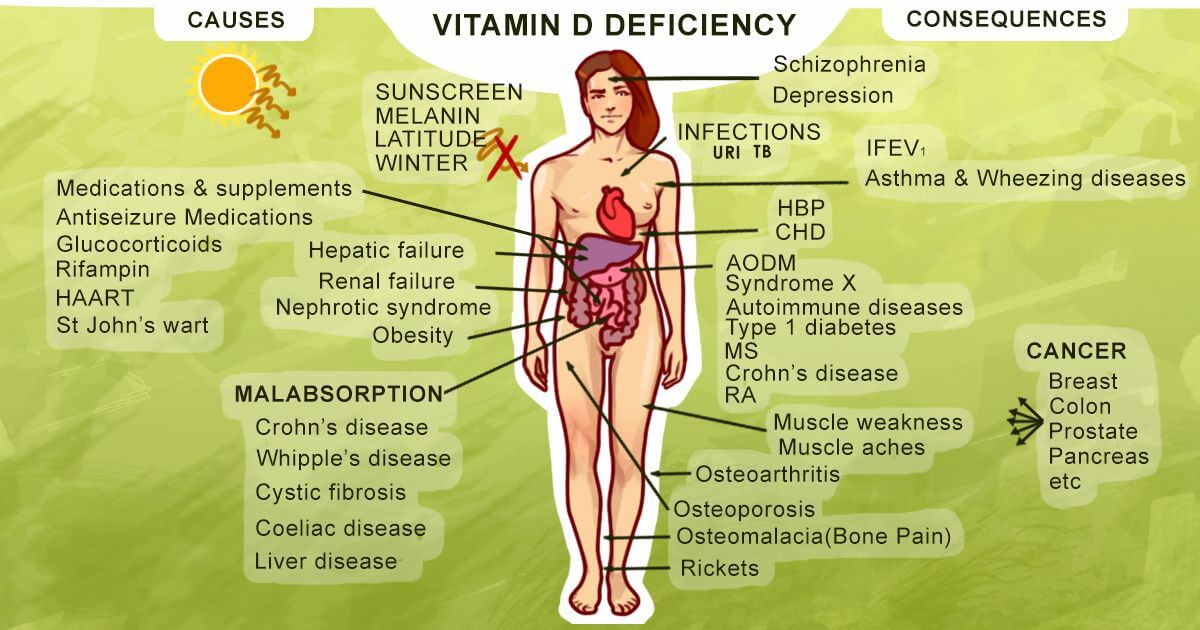Vitamin D is often overlooked because our bodies naturally produce it when exposed to sunlight. It doesn’t take much sun exposure—just about ten minutes a day with your arms and legs uncovered can meet your daily Vitamin D needs, especially for people with fair skin. It sounds simple enough, right? Not quite. Since the year 2000, research has revealed a widespread deficiency in Vitamin D across all age groups. People who regularly wear sunscreen, along with older adults who spend less time outside, are particularly at risk. Because the body’s ability to produce Vitamin D declines with age, this issue becomes more pronounced over time. A blood test is the only way to know for sure if you’re deficient, but there are warning signs to watch for.
Here are ten signs that may indicate you’re low on Vitamin D:
1) Frequent Illness
Low Vitamin D levels have been linked to a higher risk of respiratory infections, including both upper and lower tract illnesses like pneumonia, as well as more frequent occurrences of colds and the flu.
2) Persistent Fatigue
While many factors can lead to tiredness, a lack of Vitamin D may be one of them. Some people notice their energy levels improve after adding a Vitamin D supplement to their routine.
3) Aching Bones
Aching bones paired with fatigue can be a clear indicator of a deficiency. Vitamin D plays a critical role in helping your body absorb calcium, which is essential for maintaining healthy bones.
4) Fragile Bones and Frequent Fractures
Vitamin D promotes bone strength and growth. People with very low levels of the vitamin may experience more fractures. Studies have shown that a severe deficiency can double the risk of bone fractures.
5) Feelings of Depression
There’s a long-known link between sunlight exposure and mood. Vitamin D influences the production of mood-regulating chemicals like dopamine, noradrenaline, and adrenaline. It also helps maintain serotonin levels. Research has associated Vitamin D deficiency with an 8–14% increased risk of depression.
6) Unexplained Weight Gain
If you’re gaining weight despite a stable diet and regular activity, low Vitamin D could be a factor. Although the exact mechanism isn’t fully understood, studies show a correlation between Vitamin D deficiency and weight gain. Conversely, supplementation has been found to aid in weight loss when paired with a healthy lifestyle.
7) Slow Wound Healing
Vitamin D plays a role in skin repair and immune function. It helps manage inflammation and infection, both of which are crucial to proper wound healing. A deficiency can slow this process significantly.
8) Excessive Sweating
Though it may seem odd, sweating—especially on the forehead—is considered one of the early signs of low Vitamin D levels. Adults with this deficiency may have trouble regulating their body temperature and experience unexplained sweating.
9) Weak Muscles
Muscle weakness, particularly in older adults, can be a symptom of low Vitamin D. A study from Harvard found that supplementation improved muscle function and reduced the risk of falls by about 20%.
10) Muscle Pain
There’s growing evidence that low levels of Vitamin D are associated with muscle pain. One study revealed that 71% of people with chronic muscle pain were Vitamin D deficient. In children, taking supplements reduced growing pains by an average of 57%.
Vitamin D deficiency, when detected early, is generally easy to correct. Getting more unfiltered sunlight, consuming foods rich in Vitamin D like eggs, cheese, and fatty fish, or taking over-the-counter supplements can help restore proper levels. However, the symptoms often go unnoticed or are confused with other health issues. If you’re experiencing several of the signs listed above or are curious about trying a Vitamin D supplement, speak with your doctor first to ensure it’s the right step for you.
